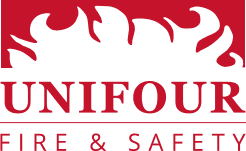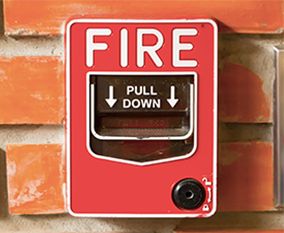
Fire Alarm Testing Requirements
Fire alarms don’t just sit on the wall for looks; they’re built to alert you when seconds count. In commercial buildings, where tenants, employees, and customers rely on that protection, there’s no room for error. That’s why regular fire alarm testing isn’t just good practice. It’s a legal requirement. Skipping required checks could lead to major consequences, including code violations, fines, liability issues, and denied insurance claims. Routine testing ensures your system is functional, documented, and ready when it matters most.
Codes That Set the Rules
The primary code governing fire alarm testing schedules is NFPA 72, the National Fire Alarm and Signaling Code. It outlines the frequency of checks for each system component, including smoke detectors, pull stations, the control panel, and backup power. In most areas, the local Authority Having Jurisdiction (AHJ) enforces these rules. That could be the fire marshal, city building department, or other local officials.
Your insurance provider may have specific rules about system checks. Some want proof of testing more often than the code requires, especially if your building has a higher fire risk. If you lease space to other businesses, you may also have testing responsibilities outlined in your lease agreement. It’s not just one agency you have to follow; it’s a combination of national codes, local laws, and business contracts that you must adhere to. A licensed partner can help you stay in line with all of them.
How Often Should You Test?
Different parts of the fire alarm system require testing at various times. Most systems require a quick visual check every month. Your staff walks through the building to ensure everything looks right. That includes checking that smoke detectors haven’t been covered up, that manual pull stations are still easy to reach, and that nothing’s damaged.
Twice a year, you’ll need to do more involved testing. That means checking specific system functions, such as how quickly a signal travels to the fire panel or how backup batteries respond when the power fails.
Once a year, you’ll need a full functional test. That test includes sounding the alarms, activating the system from different locations, and verifying that signals reach the monitoring service. You’ll also need to document all of it. These records must be kept on file in case a fire inspector or insurance adjuster requests to review them.
Inspections, Testing, and Maintenance Are Not the Same
An inspection is usually a visual check. You’re ensuring that equipment is in the correct location, hasn’t been obstructed or damaged, and still has its labels and sufficient clearance space. You’re not activating anything yet. You’re just checking that everything looks correct.
Testing is the next step. This is when alarms are triggered intentionally to confirm that they function correctly. You press manual pulls, apply smoke to detectors, and trip the system to make sure it sends the right signal to the control panel. It’s louder, more involved, and should be handled by someone who knows what they’re doing.
Maintenance is typically scheduled after a failed test; however, preventive maintenance, such as replacing batteries or cleaning detectors, may also be planned in advance to prevent problems. If a detector doesn’t respond, or if a horn doesn’t sound, it needs to be repaired or replaced. Maintenance is about fixing what’s broken or worn out so that the system returns to full function.
Who’s Allowed to Perform Testing?
Fire alarm testing isn’t something your maintenance team should handle alone. Codes require fire alarm inspections to be performed by qualified personnel. This is typically someone trained and experienced in fire alarm systems. In many states, this also means working with a licensed company or technician authorized to certify tests. If you hire someone unqualified and they make a mistake, your building might not meet legal standards, and you could be liable. Working with a qualified professional also helps when you submit testing records to your insurance provider. It gives you proof that your system was checked by someone who followed the right process, using the correct tools and checklists.
Schedule Fire Alarm Testing Today
At [company_name], we handle alarm testing, troubleshooting, and code-based reporting so you don’t have to second-guess your setup. We also offer smoke detector upgrades and electrical repair services to keep your system fully reliable. Schedule fire alarm testing with [company_name] or request a code compliance review today to make sure your protection is always up to standard.
 Click to Apply
Click to Apply 



